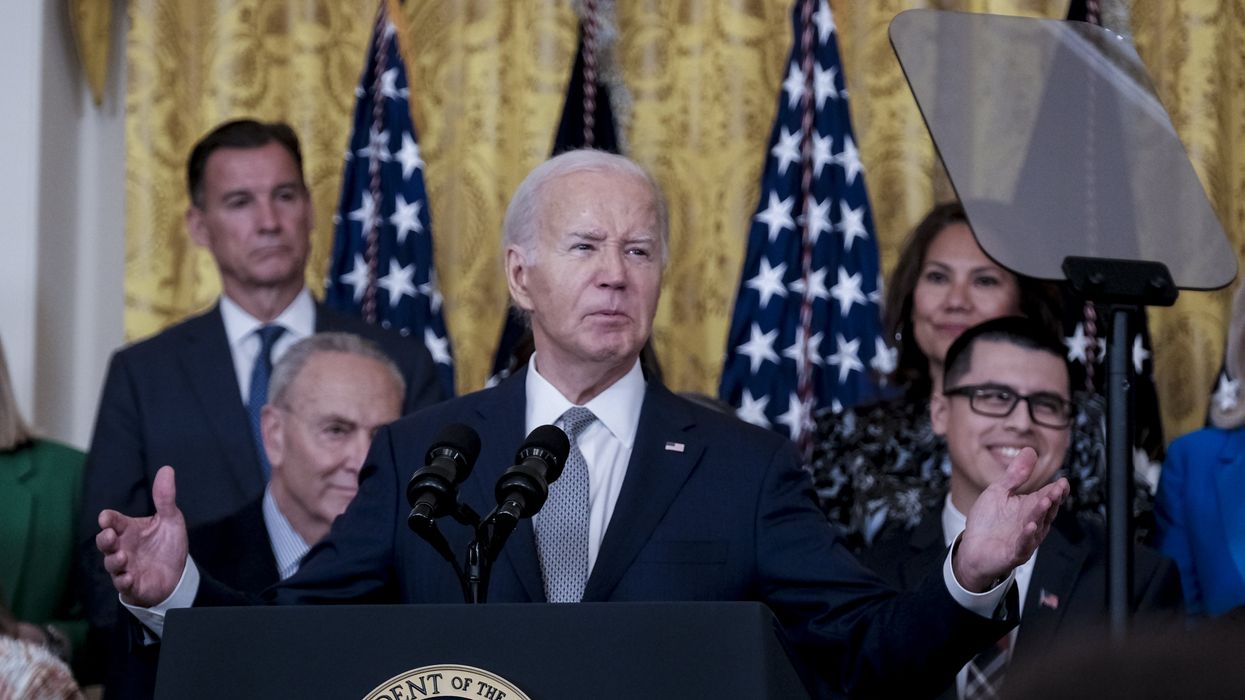Sedeño is the immigration policy analyst for the Latino Policy Forum.
“¡Tengo treinta años aquí! ¡No califico para esto!” ( “I’ve been [in this country] for 30 years! I do not qualify for this!”)
The words of this long-time immigrant worker were not easily forgotten as dozens of immigrants, advocates, elected officials, labor unions, and faith and business leaders gathered at The Resurrection Project on June 19 to respond to President Joe Biden’s recent actions on immigration. Once implemented, these actions will streamline paths to work authorization and legal status for hundreds of thousands of undocumented immigrants and DREAMers across the country — the largest move since the Obama administration instituted the Deferred Action for Childhood Arrivals program in 2012.
The proclamation, as announced, would help immigrants in two key ways:
- Allow certain undocumented spouses of U.S. citizens to apply for “ parole-in-place (PIP),” a protection against deportation, while inside the country. This will allow many to access a work permit and legal permanent residency. Approximately half a million undocumented immigrants and their children will be eligible. Eligible spouses and children will be able to apply beginning Aug. 19.
- Allow DACA recipients and other DREAMers, who have earned a bachelor’s degree or higher and who have received an offer of employment from a U.S. employer in a specialized field related to their degree, to more quickly receive work visas, which in time, could provide a pathway to legal permanent residency.
The announcement came just one month after the Illinois General Assembly became the largest governing body in the country to pass a resolution calling on Biden to use his executive authority to grant work permits through parole to all long-term undocumented immigrants in Illinois amid prolonged workforce shortages.
“[Passing HJR 69 was] a declaration of our state’s commitment to both economic pragmatism and human rights,” said Latino Policy Forum President and CEO Sylvia Puente.
Every year, 400,000-plus workers contribute $1.9 billion to the Illinois economy without official work authorization. Nearly 30 percent have been residing in the United States for 20 or more years. The resolution made it very clear: granting work permits to this population would increase tax contributions to the state, secure fair wages and protections for workers, and keep families and businesses thriving.
Passing HJR 69 took an enormous amount of issue education, advocacy and organizing by 100-plus members of the Work Permits for All campaign, which officially launched in August of last year, alongside the national Here to Work Campaign. Advocates and allies organized rallies and press conferences across the country, including in Washington, D.C., where over 2,000 people attended to express their support. The first political responses came from the Chicago City Council and the Cook County Board, which passed the first resolutions calling for work permits for the long-term undocumented in December 2023.
In the winter and spring of 2024, rallies and educational workshops continued, Mayor Brandon Johnson announced his public support, and by the end of May, HJR 69 passed with overwhelming support in both chambers of the legislature.
As a member of the campaign, the Latino Policy Forum quickly became a leader in developing a legislative advocacy strategy, policy language and analysis. Biden’s announcement provided the one thing the campaign needed and hoped for — political will.
However, as the immigrant worker’s justified frustration reminds us, the new PIP policy will only grant work permits and protections to some — not all undocumented immigrants. There are many immigrants who will be left out — spouses who were unable to marry before the arbitrary cutoff date, spouses who have been in the country only nine years but still pay taxes, parents of U.S. citizens, long-time workers, caregivers, etc. Many immigrants who are ineligible for PIP will not even be able to obtain a work permit.
For many immigrant and worker advocates, work permits for all is still the goal, along with a meaningful pathway to citizenship. For far too long, immigrant communities have had to collectively celebrate wins even though many will not benefit. While this action is a significant step forward in protecting mixed-status families, more work needs to be done to secure relief for the other 10.5 million undocumented immigrants.
A version of this article was first published by the Latino Policy Forum and has been republished with permission.



















Trump & Hegseth gave Mark Kelly a huge 2028 gift